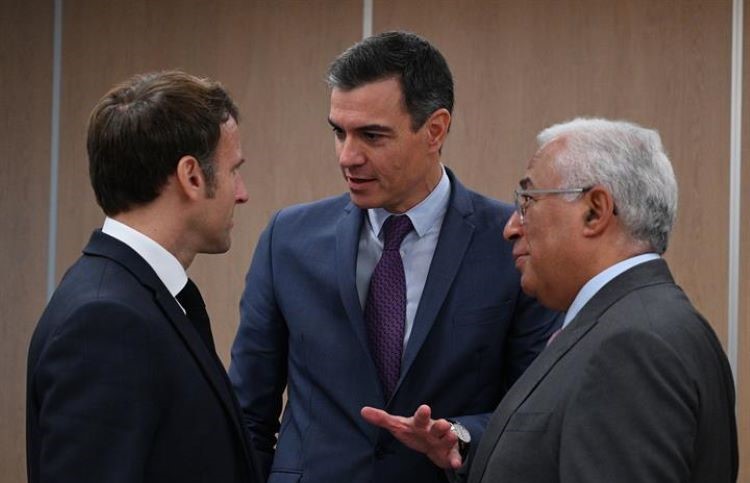Eduardo González
The President of the Government, Pedro Sánchez, the President of France, Emmanuel Macron, and the Portuguese Prime Minister, António Costa, reached an agreement yesterday in Brussels to abandon the MidCat trans-Pyrenean gas pipeline project and create, instead, a maritime pipeline between Barcelona and Marseille (BarMar) to connect the Iberian Peninsula with the rest of the EU through France.
“We have reached an agreement the three governments to replace the MidCat project with a new project, which is going to be called the Green Energy Corridor and which is going to link the Iberian Peninsula to France and, therefore, to the European energy market, raising the Barcelona-Marseille alternative,” Pedro Sánchez told the press upon his arrival at the European Council meeting, which will conclude today and which addresses, among other issues, the impact of Russia’s war against Ukraine on Europe’s energy crisis and economy.
The three leaders, Sánchez continued, have agreed to meet again on December 8 and 9 in Alicante, in the margins of the Euromed Summit (the nine EU countries that belong to the Mediterranean), to jointly address three fundamental aspects, in the eyes of the Spanish Government”: the deadlines for the investment, the distribution of the costs and, “logically, the volume of economic resources that we are going to have to involve”.
As reported by Moncloa in a press release, the agreement – contained in a joint declaration – includes commitments to conclude the renewable gas interconnections between Spain and Portugal – which will link Zamora with Celourico da Beira (CelZa) -, to develop a maritime gas pipeline connecting Barcelona with Marseille (BarMar), “as a faster and more efficient option to link the Iberian Peninsula with Central Europe”, and to technically adapt these hydrogen infrastructures to transport other renewable gases, as well as a limited proportion of natural gas as a temporary and transitory energy source.
The three leaders also expressed their commitment to accelerate and expand electricity interconnections between the Iberian Peninsula and France, through the Bay of Biscay, “to achieve an electrically connected Europe.” “We are not only talking about interconnecting energy sources, such as hydrogen, gas or other renewable energy sources, but also about promoting electricity interconnections between the Iberian Peninsula and France,” Sánchez told journalists.
“I want to thank the approach and openness of the French Government and the President of the French Republic, Emmanuel Macron,” as well as “the solidarity, support and joint work we have done with Prime Minister Costa,” said the head of the Executive. “I think this is very good news for Spain, for Portugal and for France, but, fundamentally, for Europe, because it is a sign of solidarity, of solidarity commitment with the rest of Europe that is consistent with our commitment to the green energy transition and the ecological transition,” he added. Macron had repeatedly expressed his rejection of MidCat on the grounds that electricity interconnections should be prioritized first and that there was already a problem of “overcapacity” in the pipelines connecting Spain and France. In addition, the French president had warned that the project would cross the Pyrenees “through a protected area” and, therefore, would be inconsistent with the EU’s climate agenda.
On the other hand, Pedro Sánchez announced that during his breakfast meeting with António Costa he had reached an agreement to create “a second pillar of the Iberian solution” consisting of “regulating, within the Iberian framework, all electricity storage” in order to “have a reserve” on the Iberian peninsula that would allow the two countries “to be much stronger, much more autonomous and much more resilient and, obviously, much more competitive, which is what our homes and our industry need”. “We are very confident” that this second pillar of the so-called Iberian solution “will also be scaled in the not too distant future to the EU as a whole,” he concluded.






